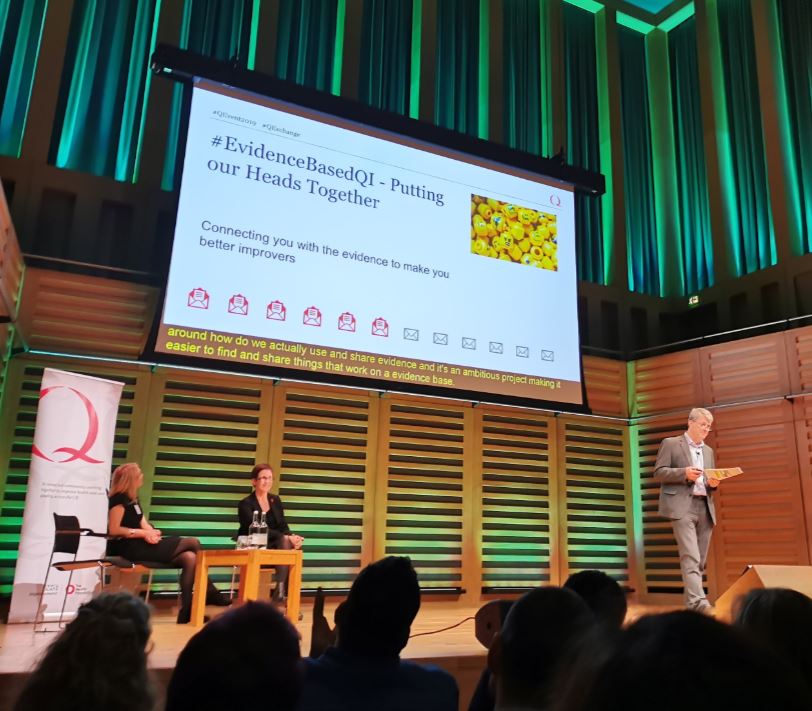
Evidence4QI (E4QI) is a 2019 Q Exchange project with an ambitious vision: to make using and sharing evidence part of the way that we ‘do’ quality improvement (QI).
We want QI teams to routinely check out the evidence and best practice before embarking on a new QI project. We want people to ask ‘what does the evidence say?’, and we want QI projects to share their learning of what has and hasn’t worked. For more about the project, watch our introduction video.
A highlight of our E4QI journey so far was the #E4QI #QIhour tweet chat on 12 August 2020. More than 80 people took part and more than 800 tweets were shared. The tweet chat highlighted what is in my opinion the best thing about E4QI and about Q; that is collaboration.
The tweet chat was an example of authentic collaboration. The questions were co-produced by a national team of QI and library volunteers. The chat was facilitated by Gloucestershire Safety & Quality Improvement Academy, in partnership with trusts and QI teams across the country. It was championed by Hugh McCaughey, National Director of Improvement, who has been a part of our Evidence4QI story from day one. We were also joined by leaders such as Q Initiative Director Penny Pereira, Roy Lilley and Terri Porrett from the Academy of Fabulous Stuff, Sue Lacey-Bryant, Louise Goswami and Sue Robertson from HEE, and Gill Phillips, the creator of ‘Whose Shoes?’
Together we have it in our gift to collaborate and share our learning across organisational and geographic boundaries
The energy and engagement in the tweet chat was electric. The ideas, one building on another, were flowing freely. Plans were hatched. Innovations, best practice and tips were shared. Relationships were formed and networks built. Librarians put themselves out there and put their hands up to offer to help QI teams. QI teams shared examples of how valuable they found it bringing librarians in to support their projects. Others made public commitments to working more closely together to share learning. And patients asked why we weren’t routinely using evidence in improvement already!
The tweet chat was an example of the power of what passionate people can do when they come together. Together we have it in our gift to collaborate and share our learning across organisational and geographic boundaries. The challenges we are facing are not that different. And we can tackle them better by working together and learning from each other (a perfect example of this is how we are all converting our QI training into an online offering). In a climate where we can sometimes feel isolated and alone, sharing knowledge and best practice connects and unites us.
The E4QI project is here to help you on your journey to evidence based QI. Here are 5 steps you can take right now:
- Read and share the QI Evidence Update which is published monthly. You’re also welcome to pinch with pride and make it your own.
- Check out the E4QI Pinterest site which has links to loads of great QI and knowledge sharing resources, including QI research, free online QI training, QI guides and much more.
- Build your virtual networks. You could start by following @Evidence4QI on Twitter where we’ll be sharing formal and informal opportunities for knowledge sharing and publication.
- Share your learning on the Academy of Fabulous Stuff site which gets over 2,000 visitors a day, and take part in #FabChange20
- Make asking for evidence part of how you ‘do’ QI. And help others by sharing your learning at the end. The Evidence4QI project and your library team want to help. Just ask.
Visit the Q Exchange project page for Evidence4QI to find out more.